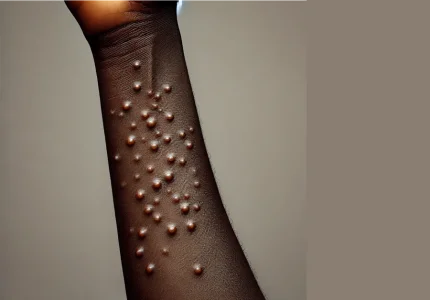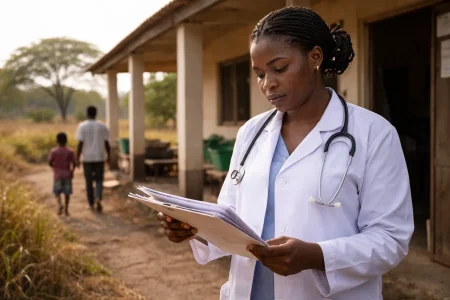
Monkeypox, now rebranded as "mpox" by the World Health Organization (WHO), has recently garnered global attention due to its rapid spread across various countries, including Nigeria. As the WHO has declared it a significant public health concern, it's crucial for Nigerians, both at home and abroad, to be informed and take necessary precautions.
What is Monkeypox?
Mpox is a viral infection caused by the monkeypox virus, part of the Orthopoxvirus genus. It is endemic in parts of Central and West Africa, including Nigeria. The disease can spread from animals to humans, but human-to-human transmission is also common, primarily through close contact with an infected person or contaminated materials.Recent Developments
Nigeria has seen a resurgence in mpox cases, with reports indicating a steady increase in confirmed infections since its re-emergence in 2017. The Nigeria Centre for Disease Control (NCDC) has been actively monitoring the situation, but the risk of undetected cases remains high, particularly in rural areas with limited healthcare access.How Can Nigerians Protect Themselves?
Given the growing concern, here are four critical areas for public awareness and behaviour change to help prevent the spread of mpox:- Recognising Symptoms Early: Mpox symptoms often include fever, headache, muscle aches, swollen lymph nodes, and a characteristic rash that progresses from red spots to blisters and scabs. Early detection is critical to preventing further transmission. Anyone experiencing these symptoms should seek medical attention immediately.
- Safe Practices in Handling Animals: Since mpox can spread from animals, particularly rodents, to humans, it's essential to handle animals with care. Avoid contact with wild animals, and ensure that animal products are thoroughly cooked - particularly important in rural areas where hunting and bushmeat consumption are common.
- Hygiene and Isolation: Regular handwashing with soap and water, using hand sanitisers, and avoiding contact with infected individuals is crucial. If someone in your household contracts mpox, they should be isolated from others, and their belongings should be handled with gloves and disinfected appropriately.
- Community Awareness and Reporting: Public health education campaigns are vital in spreading awareness about mpox. Communities should be encouraged to report suspected cases to health authorities promptly. Local leaders and health workers can significantly disseminate accurate information and ensure timely medical intervention.
Conclusion
As the situation evolves, staying informed and vigilant is essential. Nigerians must adopt preventive measures, recognise symptoms early, and support public health initiatives to curb the spread of mpox. The NCDC continues to provide updates and resources to help manage the outbreak effectively, but community cooperation is crucial for success.By understanding the risks and taking proactive steps, Nigerians can protect themselves and help prevent a more significant outbreak.




